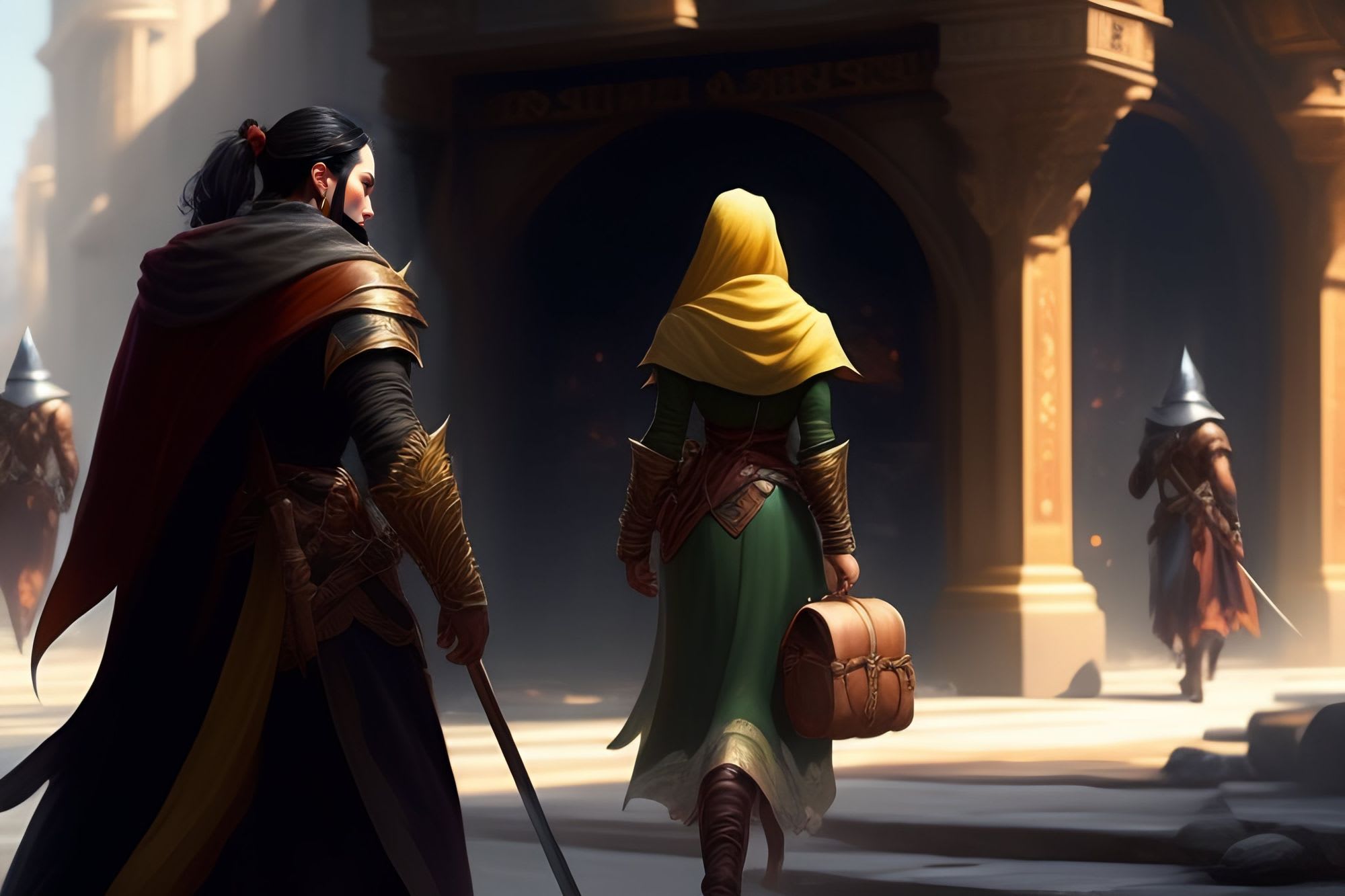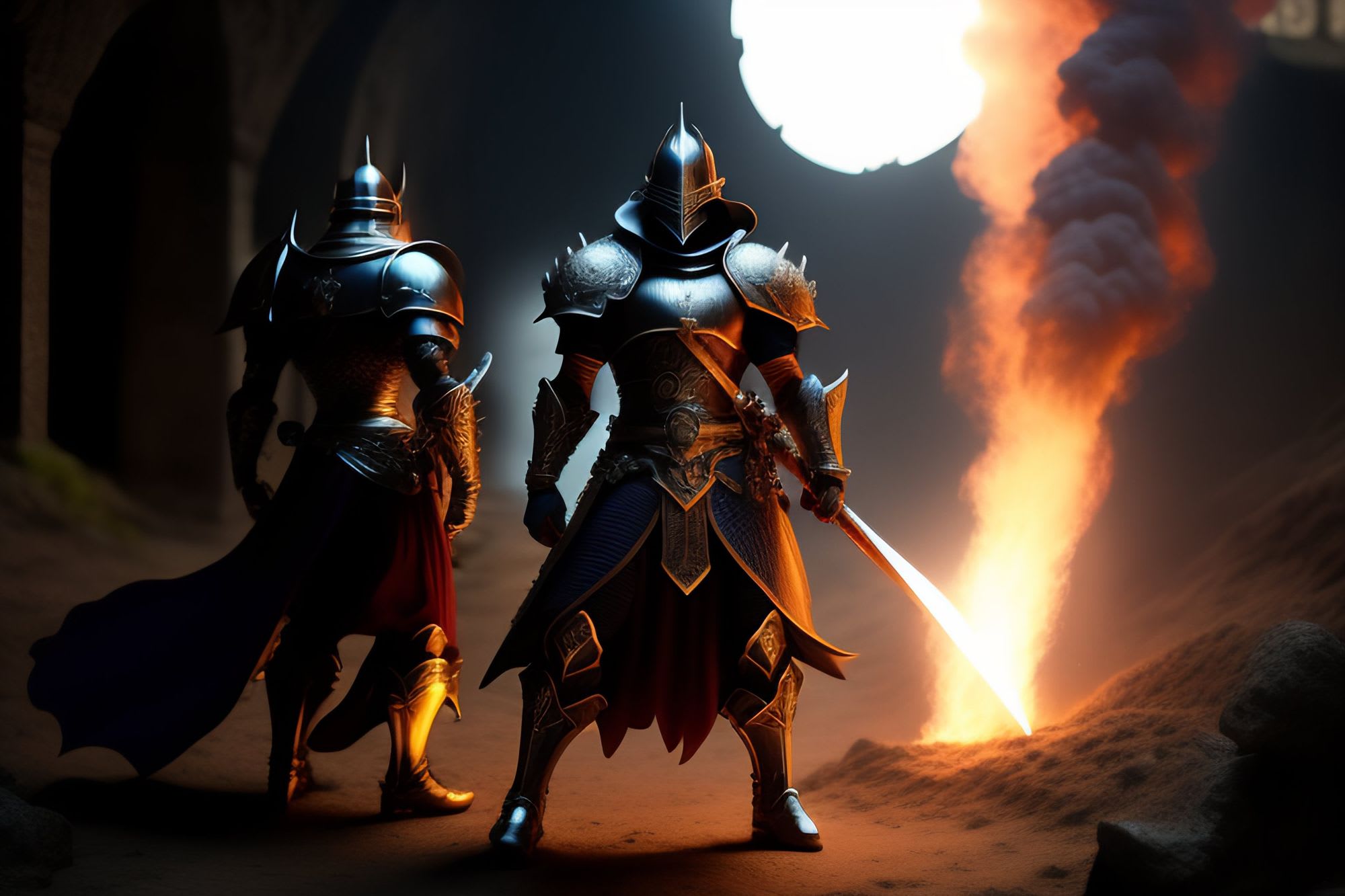A Comprehensive Guide to Rules and Mechanics
Welcome to the world of Dungeons & Dragons, where epic quests and heroic feats await. To embark on your journey with confidence, it's essential to grasp the fundamental mechanics that govern the game.
This guide serves as your gateway to understanding the rules that shape character creation, combat, spellcasting, and so much more.
Table of Contents:
1. Dice 101
2. Ability score
3. Death Saving Throws
4. Ability checks, proficiencies & saving throws
5. Armour 101
6. Weapons 101
7. Combat actions
8. Spell casting basics
9. Advantages & disadvantage
10. Levelling up
11. Passive abilities
12. Spell range & area of effect
13. Melee weapons
14. Ranged weapons
15. Perception vs investigation
16. Spell components
17. Multicasting
18. Condition effects
19. Skills
20. Feats
21. Backgrounds
Dice 101: The Roll of Fate
- Understanding Different Types of Dice
- Rolling for Checks, Attacks, and Damage
- Interpreting Critical Hits and Failures

Ability Scores: The Building Blocks of Characters
- Exploring Strength, Dexterity, Constitution, and More
- Calculating Ability Modifiers and Bonuses
- Tailoring Ability Scores to Character Concepts

Death Saving Throws: Facing Mortality
- Navigating the Mechanics of Death Saves
- Determining the Outcome of Life and Death Situations
- Consequences of Successes and Failures

Ability Checks, Proficiencies & Saving Throws: Overcoming Challenges
- Differentiating Between Ability Checks and Saving Throws
- Applying Proficiency and Skill Bonuses
- Resisting Effects with Saving Throws

Armour 101: Shielding Against Danger
- Understanding Armour Class (AC)
- Exploring Different Types of Armour
- Balancing Protection and Mobility

Weapons 101: Arming for Adventure
- Identifying Different Weapon Types
- Determining Damage and Proficiency
- Role and Use of Weapons in Combat

Combat Actions: Navigating the Battlefield
- Grasping the Mechanics of Attack and Damage Rolls
- Unleashing Special Actions Like Dodge and Dash
- Using Reactions and Bonus Actions Strategically

Spell Casting Basics: Unleashing Magical Power
- Learning the Components of Spellcasting
- Casting Spells of Different Levels
- Preparing Spells for Each Adventuring Day

Advantages & Disadvantages: Shaping the Odds
- Understanding How Advantage and Disadvantage Work
- The Impact of Multiple Effects on Rolls
- Balancing the Power of Advantage and Disadvantage

Levelling Up: Ascending in Power
- Grasping the Process of Gaining Experience Points
- Choosing New Abilities, Spells, and Features
- Evolving Your Character as They Progress

Passive Abilities: Background Mechanics at Play
- Unveiling the Concept of Passive Scores
- Utilizing Passive Perception and Investigation
- Role in Detecting Hidden or Passive Events

Spell Range & Area of Effect: Mastering Magic's Reach
- Determining How Far Spells Can Reach
- Understanding Burst, Cone, Line, and Sphere Effects
- Navigating Line of Sight and Cover

Melee Weapons: Mastering Close Combat
- Exploring Different Types of Melee Weapons
- Determining Attack Rolls and Damage
- Understanding Reach, Finesse, and Versatile Properties

Ranged Weapons: Precision from Afar
- Identifying Various Ranged Weapon Options
- Calculating Ranged Attack Rolls and Damage
- Navigating Range Increments and Ammunition

Perception vs Investigation: Unraveling Mysteries
- Differentiating Between Perception and Investigation
- Role of Skills in Detecting Hidden Objects and Details
- Using Skills in Exploration and Solving Puzzles

Spell Components: Weaving Magic's Essence
- Understanding Verbal, Somatic, and Material Components
- Role of Components in Casting Spells
- Balancing Realism and Gameplay with Material Components

Multicasting: Channeling Multiple Spells
- Grasping the Rules for Casting Multiple Spells
- Utilizing Bonus Action and Action Spells
- Navigating Concentration Spells and Their Interactions

Condition Effects: Affecting Characters in Battle
- Unveiling the Impact of Conditions like Prone and Stunned
- Effects on Movement, Attacks, and Abilities
- Using Conditions Strategically in Combat

Skills: Versatility and Expertise
- Exploring Different Skill Proficiencies
- Applying Skills in Non-Combat Situations
- Balancing Roleplay and Mechanics Through Skills

Feats: Specializing and Enhancing Abilities
- Understanding the Role of Feats in Character Progression
- Choosing Feats to Customize Your Character
- Incorporating Feats to Enhance Roleplay and Gameplay

Backgrounds: Shaping Character Identity
- Selecting Backgrounds to Reflect Your Character's Origin
- Proficiencies, Traits, and Roleplay Hooks
- Integrating Background Elements into the Story

Congratulations! You've delved into the heart of Dungeons & Dragons fundamentals, equipping yourself with the knowledge to navigate ability scores, combat, spellcasting, and more.
Armed with this understanding, you're ready to embark on adventures, forge alliances, and shape your destiny in a world of fantasy and imagination.
As you roll dice, cast spells, and embrace the intricacies of the game, may your journey through the realms of D&D be filled with excitement, camaraderie, and endless possibilities!

